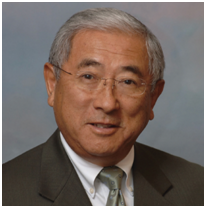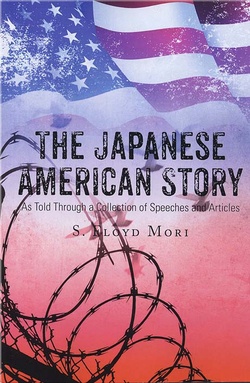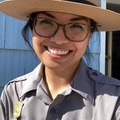S. Floyd Mori is the former National Executive Director/CEO of the Japanese American Citizens League (JACL), current president of the Asian Pacific American Institute for Congressional Studies (APAICS), and has held numerous other positions besides. He has worked as an international business consultant, a professor of economics, the mayor of Pleasanton, California, and been elected to the California state assembly. His greatest achievement though, by his own account, has been his lifelong commitment to Japanese American civil rights advocacy. After over five decades of work, Mori is now preparing for retirement from his role at the forefront of Asian American activism. It will certainly not be the last we see of his work.
On January 23, the Japanese American National Museum will host Mori for a book reading and conversation about his latest project: a compilation of his own speeches and published articles in a volume appropriately titled The Japanese American Story: As Told Through a Collection of Speeches and Articles (2015).
Floyd Mori originally hails from Murray, Utah, and grew up feeling a mild sense of discomfort about his ethnicity. It was his Mormon faith and a gap two year missionary trip to Hawaii in 1959–61 that transformed his relationship to his own identity and the Asian American community.
In a recent interview with the author, Mori emphasized the important link between his faith, ethnicity, and nascent political activism. “My faith helped me to understand the value of my heritage,” he said, “something I had been ashamed of coming out of WWII as a child. As a Mormon, valuing one’s history and heritage was an important part of what was taught. And by serving as a missionary among Japanese Americans in Hawaii, I came to understand the great values embodied in the Asian American cultures.” The protection of those great values would become his life’s work.
Mori’s personal career in civil rights began in the 1960s with small scale organization, and then progressed quickly to a state and national-level advocacy. Armed with a dual bachelors in economics and Asian studies, he left Brigham Young University in 1961 to teach economics and organize Asian American students at a small college in Hayward, California. Come 1975, he became involved with the Redress Movement as a newly elected member of the California State Assembly.
The Redress Movement, for the unfamiliar reader, was a movement driven by the larger Japanese American community to compensate WWII camp victims. Civil rights activism in favor of redress began directly after the war, but the movement first began to gain traction after two events in 1976 and 1978. The first was President Gerald Ford’s rescission of Executive Order 9066. This was the federal order that had authorized detainment within prescribed “military areas” during WWII. Its retraction soon provided inspiration for a second event, the JACL’s national campaign for redress. In 1978, JACL members called for $25,000 in compensation to each internee, a formal apology from Congress for the incarceration, and a public funding to establish an educational trust fund. Three major national organizations, including the JACL, the National Council for Japanese American Redress, and the National Council for Redress/Reparations drove the movement towards ultimate success in 1988. Ronald Reagan signed into being $20,000 in compensation to each surviving internee, and issued a national apology for the incarceration with the Civil Liberties Act of 1988.
The Redress Movement began to gain momentum just as Floyd Mori was stepping into place in the California State Assembly. He was present in the Oval Office when President Ford rescinded Executive Order 9066 on February 19, 1976, and afterwards, he went on to establish the date as a Day of Remembrance in California. Since his participation in the national Redress Movement in the 1970s and 1980s, he explained in our interview, “Japanese American incarceration during WWII has remained at the forefront of my career as a public office holder and as a participant in the advocacy efforts for civil rights.” And his commitment to this particular issue indeed persisted through the ensuing 50 years of public service, international business, and non-profit work.
The Japanese American Story is Mori’s first book, and is a noteworthy addition to his previous activist work. It is a compilation of Mori’s own selected speeches and published articles from 2002-2012, when he served as vice president and then national executive director/CEO of the JACL. Topics covered are as diverse as his audiences and venues over the course of those ten years. Throughout the work he addresses everything from resisters of conscience within concentration camps, to the similarities between WWII anti-Japanese and modern anti-Muslim prejudice, to the future of the JACL.
This book is an overall attempt, Mori commented, to continued raising awareness about the prejudicial errors in American history; and to educate today’s youth about the significance of political participation. “Whether it is religion, color of skin, nation of origin, or sexual orientation,” he emphasized in our interview, “it is important that each individual has the free agency to make his or her own choices. The JA experience during WWII was an injustice that is at the heart of all that is not good for this country. Learning about this era and remembering its impact is something that all need to understand.”
So come to the Japanese American National Museum at 2pm on Saturday, January 23, 2016 and learn about it! Mori will speak about this book, and in particular about several lesser-known themes that it raises about internal conflict within the JA community.
For more information about the program >>
© 2016 Kimiko Medlock







